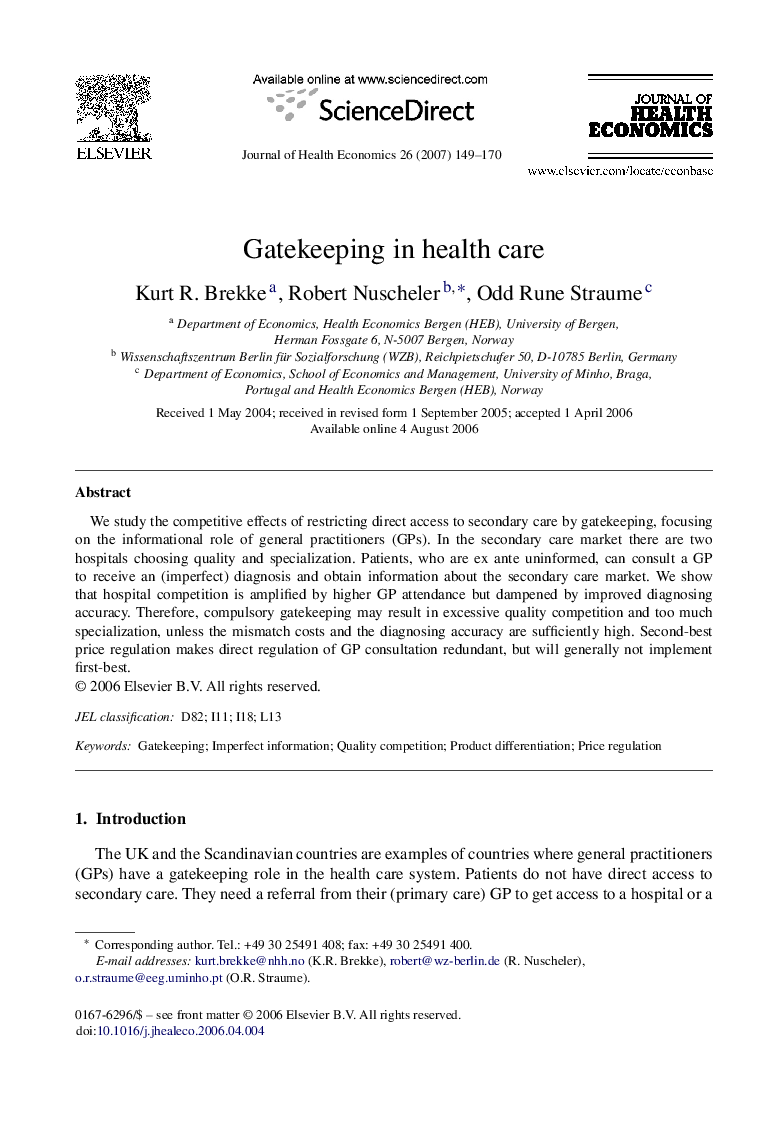| Article ID | Journal | Published Year | Pages | File Type |
|---|---|---|---|---|
| 962258 | Journal of Health Economics | 2007 | 22 Pages |
Abstract
We study the competitive effects of restricting direct access to secondary care by gatekeeping, focusing on the informational role of general practitioners (GPs). In the secondary care market there are two hospitals choosing quality and specialization. Patients, who are ex ante uninformed, can consult a GP to receive an (imperfect) diagnosis and obtain information about the secondary care market. We show that hospital competition is amplified by higher GP attendance but dampened by improved diagnosing accuracy. Therefore, compulsory gatekeeping may result in excessive quality competition and too much specialization, unless the mismatch costs and the diagnosing accuracy are sufficiently high. Second-best price regulation makes direct regulation of GP consultation redundant, but will generally not implement first-best.
Keywords
Related Topics
Health Sciences
Medicine and Dentistry
Public Health and Health Policy
Authors
Kurt R. Brekke, Robert Nuscheler, Odd Rune Straume,
